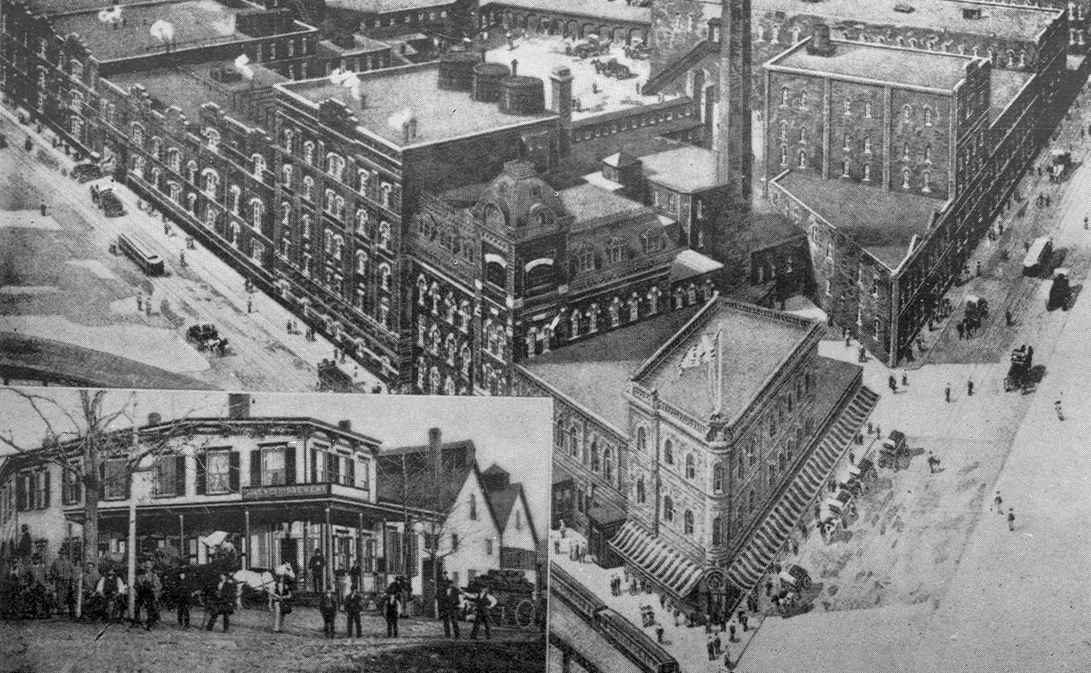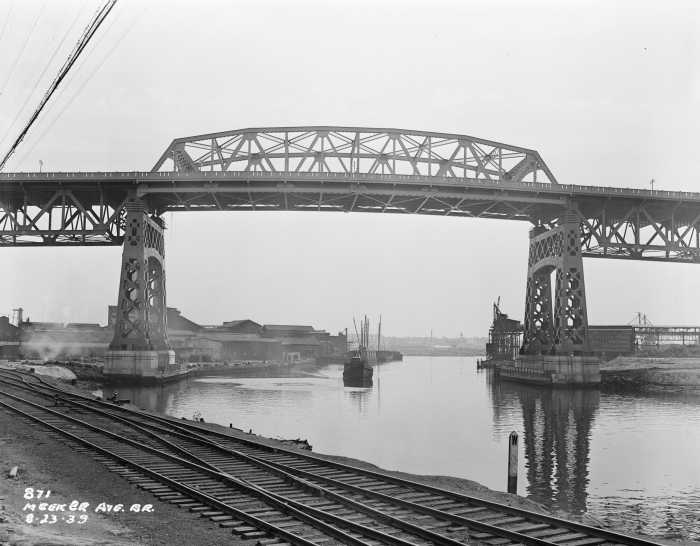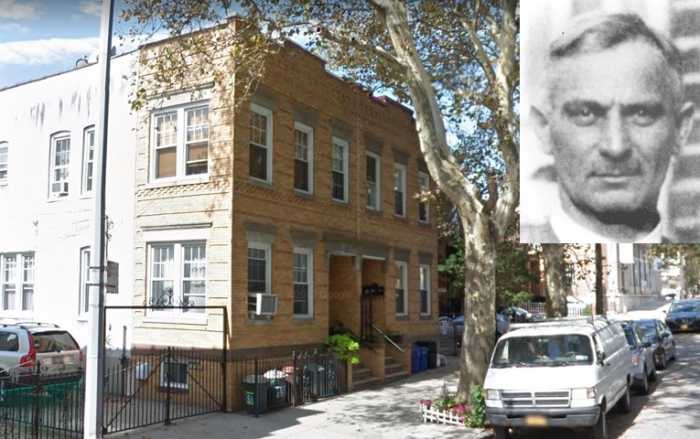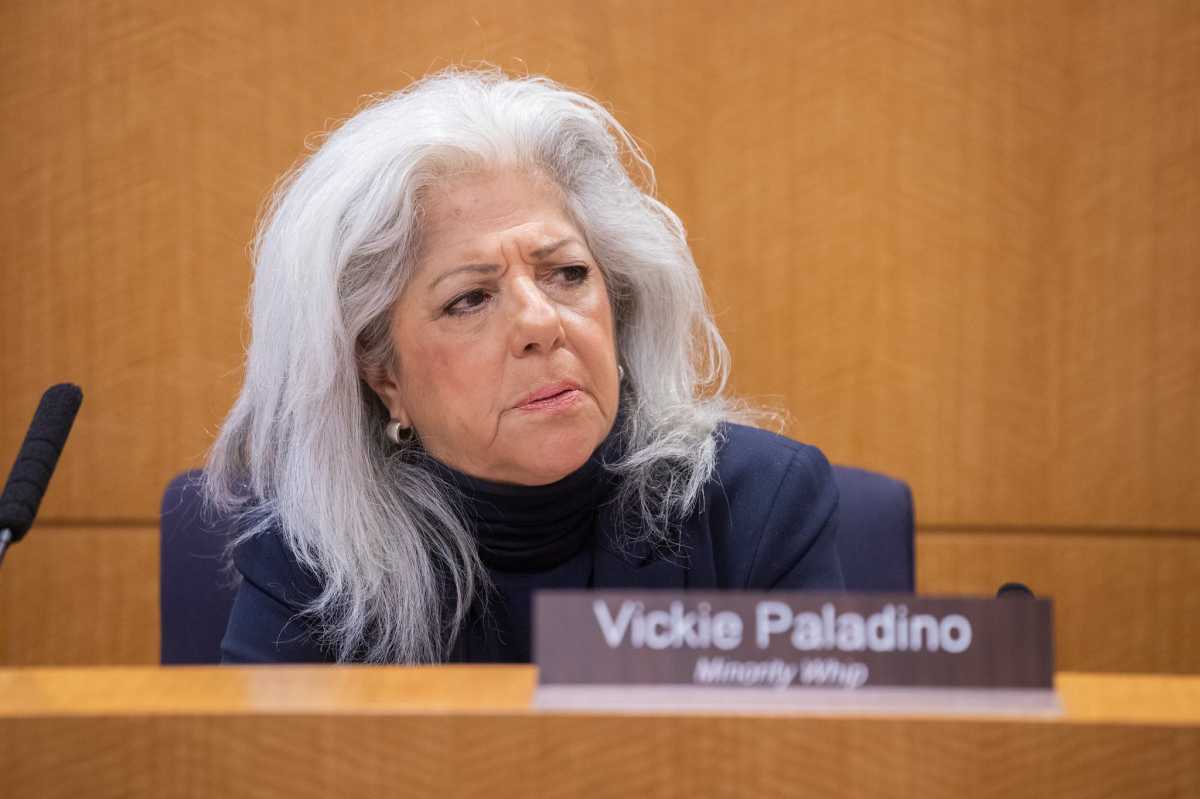In 1857, John Welz founded his brewery in a small plant on the corner of Scholes Street and Graham Avenue in Williamsburg, Brooklyn. He brewed good beer, and as the demand for his product grew, he decided to expand by relocating his brewery.
Accordingly, in November 1861, he purchased four acres of land on the southeast corner of Myrtle and Wyckoff Avenues. This is present-day Ridgewood, but back then, it was referred to as East Williamsburgh.
Welz paid $210 per acre, a grand total of $840, for the land which once had been part of the Nicholas Wyckoff Farm. The sellers were the heirs of Nicholas Wyckoff Jr., namely his four daughters: Catherine Nostrand, Jane Schoonmaker, Henrietta Meserole and Susan Harris.
On this site, Welz build this High Ground Brewery, named for the nearby High Ground Park at Grove Street and Myrtle Avenue, and increased the capacity of his brewery to 20,000 barrels (31 gallons per barrel) of beer per year.
In 1877, Charles C.D. Zerweck, who was brewmeister for Jacob Marquardt’s Brewery on Cypress Hills Road (present-day Cypress Avenue) married Emilie Welz, daughter of John Welz. A fire in May 1877 destroyed Marquardt’s Brewery, causing damage estimated at between $10,000 and $20,000. Although Jacob Marquardt subsequently left his business, Zerweck joined Welz’s brewery as brewmeister.
John Welz Sr. retired in 1883 and turned the business over to his son, John Welz Jr., and son-in-law Charles Zerweck. The name of the brewery was changed to Welz and Zerweck, and it was operated as a partnership.
The junior John Welz was born in 1859 in Williamsburg at the location of the original brewery, Scholes Street and Graham Avenue. Growing up in East Williamsburg, he attended a one-room schoolhouse on Cooper Avenue near Cypress Hills Road, and later a private school in the rear of a hotel.
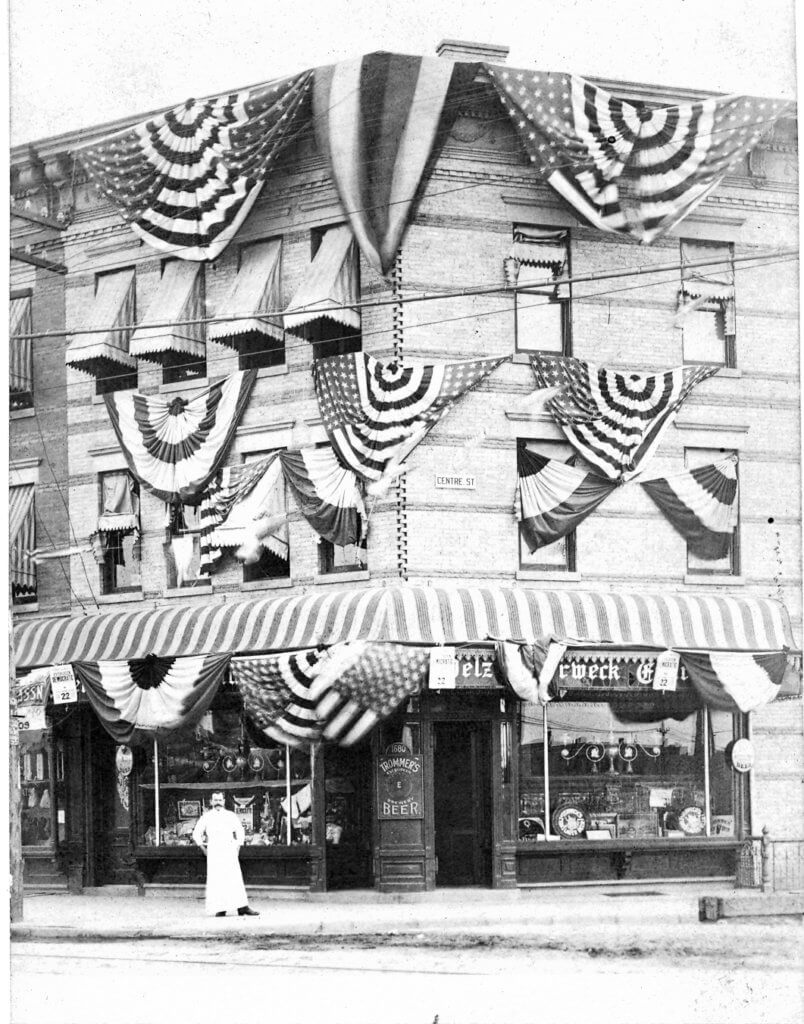
Welz & Zerweck Beer was indeed popular at local saloons, and at a popular picnic park, Glendale Schuetzen Park. The brewery had one particularly tall order to fill at the park on July 7, 1895.
About 30,000 jammed the picnic park that day for the first National Schuetzen Fest, a celebration of German culture in the neighborhood. About 1,500 half-barrels, most from the Welz & Zerweck brewery, were consumed.
From the profits made at the brewery, the officers invested in large tracts of land around Glendale.
In 1900, Henry Roth bought 26 acres of the former John Debevoise Farm, located on the north side of Myrtle Avenue from the old Fresh Pond Road (now Cypress Hills Street) to what is now 69th Place. It was originally part 70 acres of land that Nicholas Wyckoff had sold to the Debevoise family in 1781.
Meanwhile, the capacity of the Welz & Zerweck Brewery increased to 500,000 barrels of beer per year. To increase their distribution, they opened a supply depot in Coney Island to give quick service to the amusement parks in the area.
They also supplied beer to Peter Becker’s Columbia Park, located on the north side of Metropolitan Avenue near Dry Harbor Road (present-day 80th Street) in Middle Village. Although Becker was the son-in-law of William Ulmer (who was the owner of William Ulmer Brewery, a 100,000-barrel per year plant located in Brooklyn), he did not serve Ulmer beer at his park.
In 1900, Welz & Zerweck Brewery — in order to insure that only their beer was consumed at Glendale Schuetzen Park — signed a five-year lease to run the park. They also purchased a half interest in Louis Buser’s Webster Gardens Picnic Park, located on the northwest corner of Cooper Avenue and Webster Avenue (present-day 71st Street) in Glendale.
Carl Zerweck, son of Charles Zerweck, was appointed brewmeister of Welz & Zerweck. They brewed Pilsener light and Gambrinus dark beers.
In 1912, William H. Cook sold cases of 24 12-ounce bottles of Welz & Zerweck beer at his saloon and liquor store, located at Gates and Onderdonk Avenues in Ridgewood, for $1 (for the Pilsener light) and $1.25 (for the Gambrinus dark).
The Welz & Zerweck Brewery employed, at its peak, 200 men, but the burgeoning beermakers were stymied by the enactment of National Prohibition in 1920.
The company was forced to shut down part of the brewery, but continued to brew near beer — which contained less than ½ of 1 percent of alcohol by volume. They also started manufacturing soda.
Welz & Zerweck Brewery eventually sold their half-interest in Louis Buser’s picnic park to Samuel Kaplan and Louis Benzer, a glassmaker who subsequently moved his Glass and Mirror Works to the premises. Up until recently, the site served as the location of the Glendale Walsh-LaBella & Son Funeral Home.
On Sept. 30, 1925, Welz & Zerweck sold the building and the land that the brewery was located on for $100 and other valuable considerations, estimated to be $860,000. Most of the old brewery was demolished and replaced by the RKO Madison Theatre and various stores.
Reprinted from the June 30, 1985 Ridgewood Times.
* * *
If you have any remembrances or old photographs of “Our Neighborhood: The Way It Was” that you would like to share with our readers, please write to the Old Timer, c/o Ridgewood Times, 38-15 Bell Blvd., Bayside, NY 11361, or send an email to editorial@ridgewoodtimes.com. Any print photographs mailed to us will be carefully returned to you upon request.

